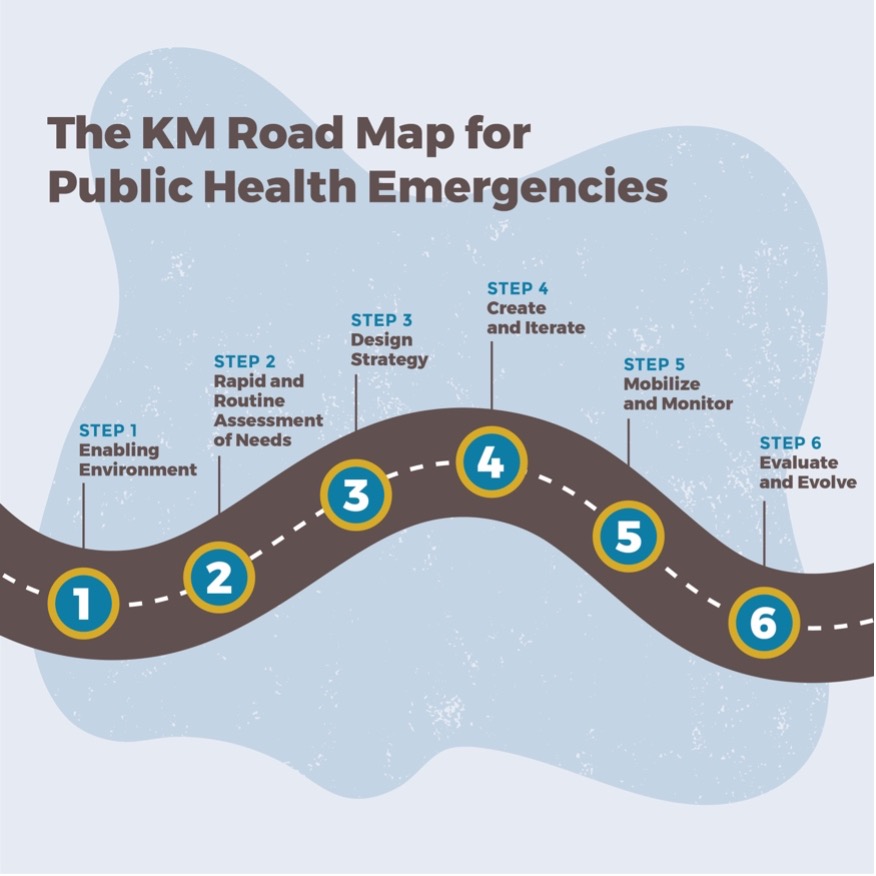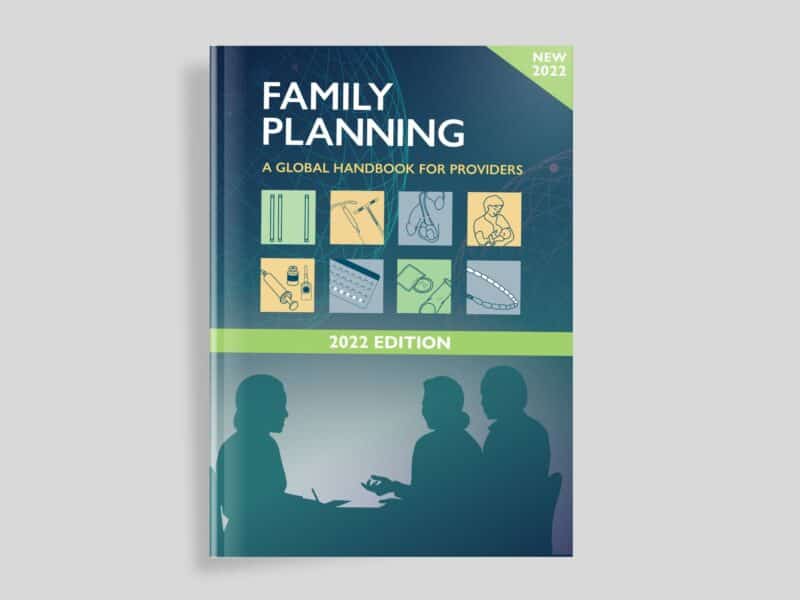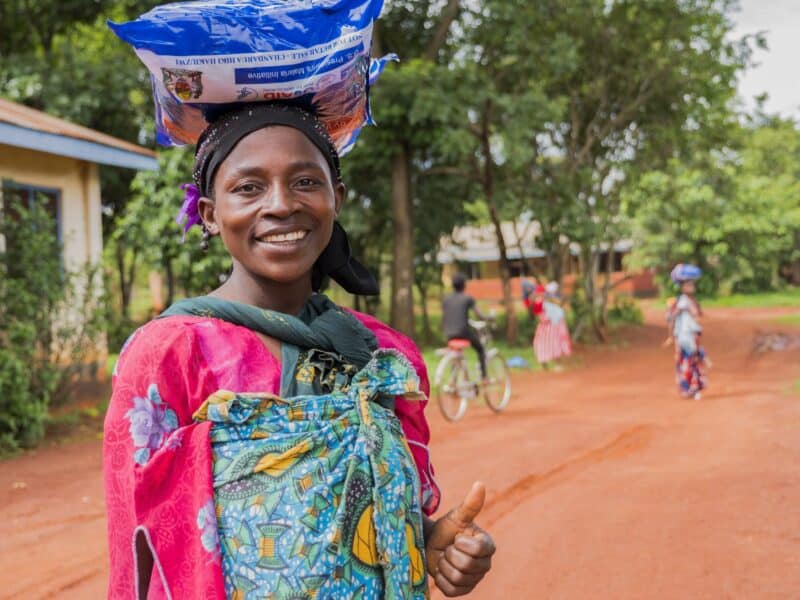If we have learned anything since the start of the COVID-19 pandemic in March 2020, it’s how essential it is for public health professionals to have access to accurate, up-to-date information to inform their work during a public health emergency.
But given the sheer quantity of information – and misinformation – being shared during a crisis, this can be challenging. In March, the Knowledge SUCCESS project, led by the Johns Hopkins Center for Communication Programs, officially launched a training module, the Knowledge Management Road Map for Public Health Emergencies, a six-step process for applying knowledge management in a public health emergency.
“Whether or not you have worked in an emergency response, after living through the last few years and in particular at the beginning of the COVID pandemic, you can probably relate to the almost constant evolution and bombardment of information that we all experienced, often with changing or even conflicting information,” said Alexia Bishop, Senior KM and Learning Advisor at USAID. Bishop delivered her remarks the online launch event (watch the recording in English and French.)
The Knowledge SUCCESS project defines KM as the strategic and systematic process of collecting and curating knowledge and connecting people to it so that they can act effectively.
The KM Road Map for Public Health Emergencies is adapted from the original KM Road Map presented in Knowledge SUCCESS’ Building Better Programs Guide , which outlines a step-by-step process that implementing partners, public health professionals, and donors can adapt to the situation at hand. The complete training module on the KM Training Package includes a complete KM Road Map for Public Health Emergencies, a condensed pocket guide, customizable implementation templates, and resources for trainers. It starts with the enabling environment and ends with monitoring and evaluation.
CCP’s Natalie Apcar, a program officer with Knowledge SUCCESS, says that setting clear expectations and establishing everyone’s roles is a key first step in an emergency. Following a needs assessment of the stakeholder audience, the KM Road Map for Public Health Emergencies guides users through the process of designing a KM strategy by choosing the KM tools and techniques – from communities of practice to case studies and guides – that meet the needs of the audiences.
Apcar says it’s important to choose research and evaluation methods that fit the specific emergency context. “Given the speed at which emergencies occur, an evaluation that’s quicker to implement may be more prudent, [such as] online surveys, periodic polls, or reporting on web analytics,” she says.
One example of the successful use of the new KM Road Map applied to the COVID-19 vaccination response. Knowledge SUCCESS created Learning Circles: interactive, small group discussions among professionals working in shared public health challenges, exchanging knowledge on what works and what doesn’t.
Evonne Mwangale, a consultant for Knowledge SUCCESS and a lecturer at Daystar University in Kenya, facilitated a Learning Circles workshop called Reaching High Priority Populations with COVID-19 Vaccination last spring. As she told the webinar attendees: “When you think of Learning Circles, think about people huddling around an issue to brainstorm, share successes, challenges, and create solutions.”
During the official KM Road Map launch, CCP’s Anne Ballard Sara, partnerships team lead for Knowledge SUCCESS, presented a case study that highlights how CCP led KM efforts for the 2016 Zika response. She reflected on the importance of being flexible and adaptive during emergency responses.
“As an emergency progresses, so will the needs of public health professionals responding to it,” Ballard Sara says. “Therefore, needs assessments should be conducted throughout the process.”
She spoke about how her team responded to the changing needs of health professionals working in the Zika response. Users of the KM Road Map can access the customizable templates in in the training module, which include a needs assessment template specifically designed for public health emergencies.
As this animated video of the road map explains, public health emergencies will continue to challenge health professionals across the globe and KM plays a critical role in setting the public health sector up for success, she says.
Ready to learn more? Visit the training module on the KM Training Package. Interested in learning more about Learning Circles, and how you can implement these knowledge exchange workshops with your team? Check out the Learning Circles training module. All of the resources for both modules are available in English, French, Portuguese, and Swahili.





